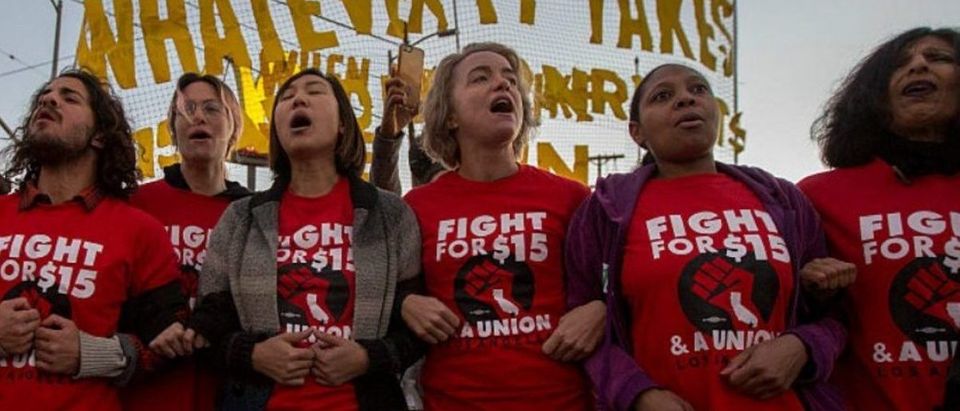The Target Corp. announced Monday an hourly minimum wage hike to $11 beginning next month, followed by an increase to $15 by 2020.
The announcement comes amid the turbulence of an increasingly tight labor market and a year that has seen the big box retailer’s stock fall by 19 percent. The wage increase will apply to “thousands” of Target’s roughly 320,000 current employees and the some 100,000 temporary hires expected this holiday season.
“We’re investing to make sure that we recruit and retain the existing team, that we attract new team members and, importantly, that we provide an exceptional service environment,” CEO Brian Cornell told reporters on a conference call.
The move represents Target’s third wage increase in three years. The chain raised hourly wages to $10 in April 2016 after increasing to $9 a year earlier to match similar hikes by Walmart.
The number of retail job openings has steadily increased since 2010 and the national unemployment rate is at its lowest point in the last 16 years, making it more difficult for retailers to hire sufficient numbers of temporary holiday workers.
Target’s move comes at a politically opportune moment as 19 states raised their mandatory minimum wage in January.
California and New York recently passed legislation that will gradually increase mandatory minimum wage to $15 over several years. A number of cities have also adopted aggressive minimum wage ordinances as the union backed “Fight For 15” has gained momentum. The urban minimum wage experiments, enacted in Seattle and San Francisco, have strained the local economies as small businesses, particularly restaurants, struggle to adapt. Democratic leadership introduced a bill in July to take the $15 minimum wage national, but the legislation failed to attract the requisite support to advance. (RELATED: Dems’ ‘Better Deal’ Plan Would Take $15 Minimum Wage National Despite Local Failures)
The increased minimum wage ordinances will likely have a muted effect as market forces have naturally driven wages up in recent years. Rather, retailers will have to contend with tightening labor markets as a primary obstacle going forward.
“They’ve got a broad, long-term problem because the labor market is tight and it’s going to get tighter,” Mark Zandi, chief economist at Moody’s Analytics told The Wall Street Journal.
Target responded aggressively to stagnating sales numbers by cutting prices, remodeling stores and prioritizing e-commerce improvements. The response has produced promising results as Target reported the first sales increase in a year last quarter.
All content created by the Daily Caller News Foundation, an independent and nonpartisan newswire service, is available without charge to any legitimate news publisher that can provide a large audience. All republished articles must include our logo, our reporter’s byline and their DCNF affiliation. For any questions about our guidelines or partnering with us, please contact licensing@dailycallernewsfoundation.org.


